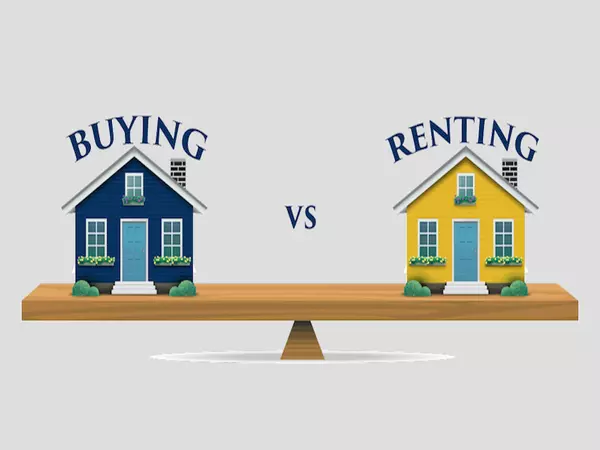Settling In: Essential Tips for New Homeowners

Settling In: Essential Tips for New Homeowners Congratulations on your new home! As you embark on this exciting journey, it's essential to transition from the home-buying process to homeownership smoothly. Here are some invaluable tips for new homeowners to ensure you're set up for a happy, comfortable, and financially sound life in your new abode. Plan for Maintenance and Repairs: Homeownership comes with the responsibility of maintaining and repairing your property. Set aside 1-3% of your home's purchase price each year for potential maintenance and repairs. This fund will help you manage unexpected issues without financial stress. Emergency Fund is Key: Beyond maintenance, unexpected life events or home-related emergencies can arise. Having an emergency fund, ideally covering 3-6 months of living expenses, can provide a safety net for unforeseen circumstances. Understand Your Mortgage: Familiarize yourself with the details of your mortgage agreement. Understanding the terms, interest rates, and the potential for refinancing can save you money and stress in the long run. Regular Maintenance Schedule: Keep your home in top condition by adhering to a regular maintenance schedule. Regular checks and upkeep can prevent minor issues from becoming major, costly problems. Smart Home Improvements: Invest in home improvements that add value to your property. Focus on projects with a high return on investment, such as kitchen and bathroom renovations, which can significantly increase your home's market value. Stay Informed on Taxes and Insurance: Property taxes and homeowners insurance are significant aspects of homeownership. Stay informed about your tax assessments and ensure your insurance coverage meets your needs, adjusting as necessary. By following these tips, you'll be well on your way to a fulfilling and financially secure homeownership experience. Remember, your home is not just where you live; it's a significant investment in your future.
Read MoreThe Great Debate: Buying vs. Renting a Home

The Great Debate: Buying vs. Renting a Home When it comes to deciding whether to buy or rent a home, many potential homeowners find themselves at a crossroads, weighing the long-term benefits against the immediate conveniences. This decision is influenced by financial situations, lifestyle choices, and future goals. Let's delve into the advantages and considerations of each option to help you make an informed decision. The Case for Buying: Buying a home is not just about having a place to live; it's about investing in your future. One of the most significant advantages is the ability to build equity over time. As you pay down your mortgage, you increase your ownership stake in the property, which can serve as a valuable asset for future financial endeavors. Moreover, homeownership offers stability. Unlike renters, who may face rent hikes or eviction notices, homeowners have the peace of mind knowing where they'll live for the foreseeable future. Additionally, buying a home allows for personalization; you can paint, renovate, and modify your space to match your taste and needs without needing landlord approval. Financial incentives, such as mortgage interest and property tax deductions, also make buying an attractive option. Plus, historically, real estate has appreciated over time, offering potential long-term financial gains. The Flexibility of Renting: Renting is often celebrated for its flexibility and minimal responsibility. It's ideal for individuals who value the ability to move without the hassle of selling a property. This mobility is perfect for those whose jobs or lifestyles require frequent relocation. Renters also enjoy the convenience of leaving maintenance, repairs, and upkeep to the landlord, freeing up time and money. Additionally, renting requires less money upfront, with costs typically limited to a security deposit and the first month's rent, as opposed to the hefty down payment and closing costs associated with buying. Making Your Decision: The choice between buying and renting depends on your financial situation, lifestyle, and long-term goals. If you're seeking stability, investment potential, and the freedom to customize your living space, buying might be the right path. However, if you value flexibility, minimal responsibility, and lower upfront costs, renting could be more suited to your needs. Before making a decision, consider your current financial situation, career stability, and where you see yourself in the next five to ten years. Consulting with a financial advisor can also provide personalized insights based on your unique circumstances.
Read MoreReal Estate Trends: What’s in Store for 2024?

primeimages / Getty Images JANUARY 19, 2024 Real Estate Trends: What’s in Store for 2024? By Kim Hays Florida Realtors chief economist: Watch for the market to reignite over the next several months. “We have weathered the worst of it.” ORLANDO, Fla. – Watch for the Florida real estate market to slowly start growing in 2024 as interest rates flatten and consumers begin realizing what they’re seeing is the new normal in prices and interest rates, Florida Realtors® Chief Economist Dr. Brad O’Connor said during the annual Florida Real Estate Trends Summit on Friday. Florida saw almost $200 billion in closed sales in 2023, which wasn’t far below 2022, a super-strong sales year post-pandemic, he told a packed room of Realtors®. Moreover, that number was substantially higher than in the pre-pandemic year of 2018, according to Florida Realtors data. “There’s still a lot of money flowing through our industry. We’re not dead,” O’Connor said. “Over the next several months, the market could reignite a little bit. Even though there aren’t as many homes for sale, the ones that are for sale are selling for more.” The summit was part of this year’s Florida Realtors’ Mid-Winter Business Meetings at the Hyatt Regency Orlando. In addition to O’Connor, the summit featured Dr. Sean Snaith, a nationally recognized economist in the field of business and economic forecasting. Snaith has won multiple awards for the accuracy of his forecasts and research. Mortgage interest rates have likely peaked, and there’s a good possibility that the Fed could begin cutting rates in the coming months — and that could reinvigorate buyers. O’Connor speculated a cut to below 6% could be in the forecast with the first relief possibly coming by May. “The psychology of buying or selling a home is closely tied to these rates,” he said. In addition to interest rates, Florida’s high property insurance prices paired with inflation continue to slow buyer demand, O’Connor said. “People are still saying the real estate market is going to crash. But that’s just not the case,” he said, explaining that adjustable-rate mortgages, which played a large part in the housing crisis of the aughts, aren’t as widespread. “We have weathered the pandemic with no foreclosure crisis. We are not in a position for a crash to happen.” Recession on the horizon? Both O’Connor and Snaith acknowledged that signs point to a slowdown in economic growth at the national level, but that a full-blown recession isn’t likely. Even so, Florida’s strong economy is well-positioned. “We are forecasting a slowdown, not a downturn at this point,” said Snaith. “I think Florida is prepared to weather any national economic storm. We’re ready.” A few of the factors buffering the Florida real estate market from some national economic trends include: The state’s labor market is strong. (Snaith: “Paychecks are still coming in.”) Florida’s population growth remains strong at about 1,000 new people a day. (Snaith: “An increase in population means an increase in economic activity.”) The state is still attractive to “untethered” remote workers. (O’Connor: “The workplace will never be what it used to be.”) Retirees with home equity looking to relocate are unfazed by high interest rates. Snaith pointed out, however, that “commercial real estate has a much bumpier road ahead than does residential” in 2024. Commercial lending has gotten significantly tighter and is still feeling repercussions of the “work from home” transition. © 2024 Florida Realtors®
Read More
Categories
Recent Posts











"My job is to find and attract mastery-based agents to the office, protect the culture, and make sure everyone is happy! "

